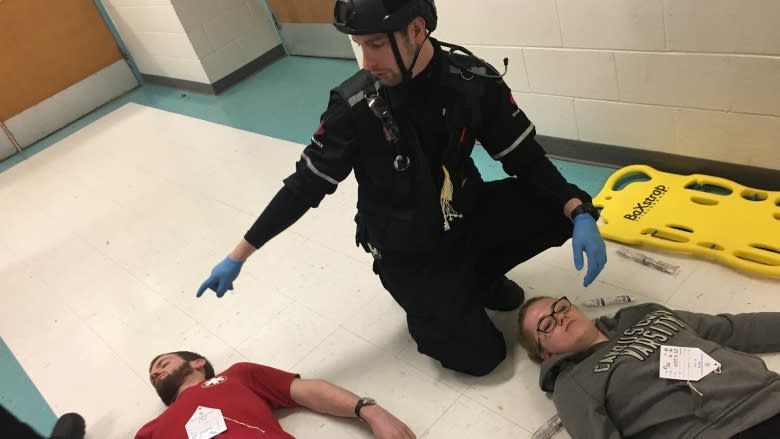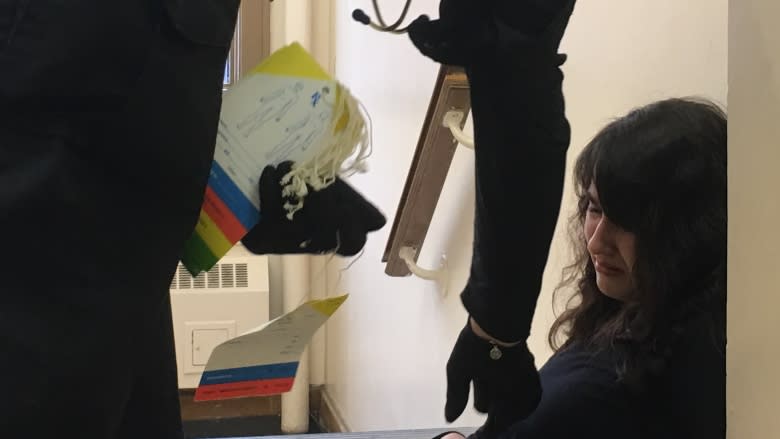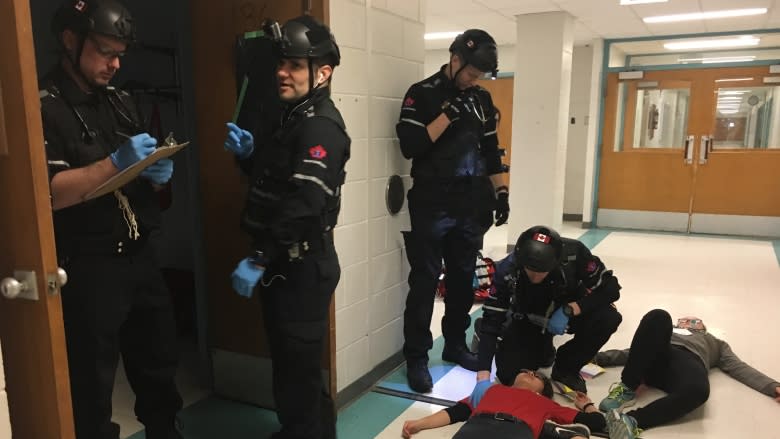EMS pairs with University of Windsor for training
Blood, overdoses and crushed bodies.
Those were all parts of three different scenarios the University of Windsor Student Medical Response Service cooked up to challenge EMS Team Ontario.
The four person EMS team is training for the International Paramedic Competition in the Czech Republic in May. They are representing Canada and will be the defending gold medalists. Their first scenario of the day was an active shooter situation.
"We want to do some triage training where we deal with large numbers of patients and you have to organize them very quickly. Decide who's acute, who's not and work together very, very concisely as a team," said Chris Kirwan, EMS Team Ontario team captain.
They train between eight and 10 hours a week, he said. That training happens during the day and at night, because the international competition runs a full 24 hours.
"We're going to do three in the morning calls, which are pretty routine for us," Kirwan said. "We work night shifts as well, so we're prepared for it. It's going to be difficult going for 24 hours in high strenuous, high intensity situations, but we're ready for it."
Communication is most important for the team. Kirwan said it can be tough when there are "screaming patients, when you're across a building from each other and when your time constrain is really, really pressing."
Connecting with the university to do this kind of training exercise, he said, helps the team think on their feet and use resources that they otherwise may not have though of. It also better prepares them for their daily work as paramedics.
"A great example of how we can apply it to real life," said Kirwan. "If we were to roll onto a scene that had multiple patients, we would now be better prepared to deal with it."
The realism is something the student program coordinator hoped for when coming up with the scenarios. Volunteers acted as wounded people, police and fire services during the training exercises.
"We based them off both current events and current things that Essex-Windsor EMS has seen and sort of amplify that to a level that where it's beyond handleable by a single crew," said Stephen Cook, program coordinator of the University of Windsor Student Medical Response Service.
The second training exercise dealt with a party where people ingested fentanyl-laced tea. Their last scenario was an elevator drop, which had crushed body injuries and people in shock. Cook said being part of the exercises gives students a sense of what it may be like to work in emergency services.
"A lot of our students, we do find that they gain a lot of real world experience, especially for those going into the medical field."




